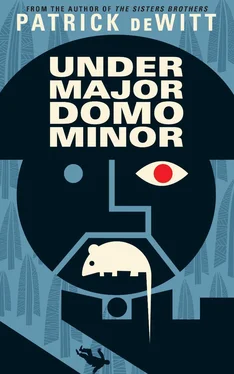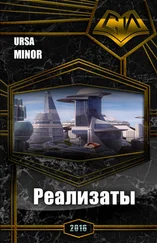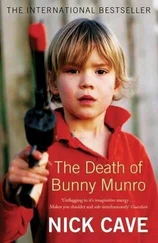By dawn the colour had returned to Lucy’s face, whereas his father’s was paler, his eyes rimmed red where the lids sprouted lash. At dusk his father was bedridden, while Lucy took heedful steps around his room. When the sun rose the next morning, Lucy felt perfectly well other than a tenderness in his joints and muscles, and his father was dead in bed, his mouth a gory sneer, hands stiffened to claws. The undertakers came to remove the corpse and one of them slipped going down the steps, knocking Lucy’s father’s head against the corner of the tread. The violence of the blow was such that it punched a triangulated divot in the skull at the forehead, and yet the wound did not bleed, an oddity which the undertakers discussed and commented on in Lucy’s presence. Lucy followed the trio out the door and watched as his frozen father was loaded into an unclean cart. The cart departed and the corpse rocked to and fro, as if under its own impulse. A spinning wind swooped under Lucy’s nightshirt and the frost from the earth breathed coolly up his ankles. Dancing back and forth on the balls of his feet he waited for a feeling of remorse or reverence which did not arrive, not on that day or any other day, either.
In the months that followed, Lucy’s mother’s attitude towards him soured further. Eventually she admitted that, though she knew Lucy was not explicitly at fault, she felt him part-way responsible for his father’s death, as he had unwittingly transferred his illness to an otherwise healthy man, and so had struck him down before his time. Lucy wanted to speak to his mother of the visitor in the burlap sack, but he had a sense that this was something he mustn’t discuss, at least not with her. The episode proved a nagging burden, however, and at night he found himself starting in his bed every time the house settled. When he could no longer bear this feeling, he sought out Father Raymond.
Lucy had no strong opinion of the Church. “I don’t know Adam from Adam,” he was fond of saying, one of many self-authored quips he felt deserved a superior audience to the lard-armed women who loitered about the fountain in the square. But there was something in Father Raymond he had responded to — a sincerity, an unpolluted empathy. Father Raymond was a moral and humane man. He followed the word of God to the letter and at night, alone in his chambers, felt the Holy Spirit coursing through his body like bird flocks. He was relieved to see Lucy in good health. In fact he was relieved to see anyone. The village was largely non-religious, and he passed full days without so much as a knock on the door. He ushered his visitor into the sitting room, setting out a tray of ancient cookies which crumbled to sand before Lucy could deliver them to his mouth. A pot of pale tea offered no palatable diversion and at last he gave up on the idea of refreshment altogether to tell the story of the stranger’s visit. At the conclusion of the tale Lucy asked who the man was, and Father Raymond made an overtaxed expression.
“How would I know?”
“I was wondering if it wasn’t God,” said Lucy.
Father Raymond looked doubtful. “God doesn’t travel through the night volleying disease.”
“Death, then.”
“Perhaps.” Father Raymond scratched his nose. “Or perhaps he was a marauder. Is anything missing from the house, that you noticed?”
“Only my father.”
“Hmm,” said the priest. He picked up a cookie, which perished. He brushed the crumbs from his hands.
“The man will come again, I think,” said Lucy.
“He told you this?”
“No. But I feel it.”
“Well, there you are. Next time you see the fellow, be sure and ask his name.”
In this manner, Father Raymond did little to put Lucy’s mind at ease regarding the stranger in the burlap sack; and yet he proved to be of assistance in another, unexpected way. When Lucy admitted to having no plans for his future the priest took the trouble to write letters of introduction to every castle within a hundred kilometres, the idea being that Lucy might excel as some manner of servant. These letters went unanswered save for one, penned by a man named Myron Olderglough, the major-domo of one Baron Von Aux’s estate in the remote wilderness of the eastern mountain range. Mr Olderglough had been won over by Father Raymond’s romantic description of Lucy as an “unmoored soul in search of nestled safe-harbour”. (It was rumoured Father Raymond spent his friendless nights reading adventure novels, which coloured his dreams and waking life as well. Whether this was true or not is unknown; that the priest was partial to poetic turns of phrase is inarguable.) An offer of employment and terms of payment rounded out the missive. The position (Mr Olderglough assigned it the name of undermajordomo, which Lucy and Father Raymond decided was not a word at all) was lowly and the pay mirrored this but Lucy, having nothing better to do, and nowhere in the world to be, and feeling vulnerable at the thought of the man in burlap’s return, embraced his fate and wrote back to Mr. Olderglough, formally accepting the offer, a decision which led to many things, including but not limited to true love, bitterest heartbreak, bright-white terror of the spirit, and an acute homicidal impulse.
Lucy regarded the village of Bury, resting — or collected, he thought, like leavings, debris — in the crease of the valley. It was such a scenic locality, and yet when he looked over the clustered hamlet he felt a sense of loss, a vague loathsomeness. Had he ever been anything other than an outsider here? No, is the answer. In a place famous for its propensity to beget brutish giants, Lucy by comparison was so much the inferior specimen. He couldn’t dance, couldn’t hold his drink, had no ambitions as a farmer or landowner, had had no close friendships growing up, and none of the local women found him worthy of comment, much less affection, save for Marina, and this had been the all too brief exception. He’d always known an apartness from his fellow citizens, a suspicion that he was not at all where he should be. When he took the position with Baron Von Aux he made the rounds to share the news and was greeted with benign matter-of-factness, rote well-wishing. His life in the village had been uneventful to the degree that his departure didn’t warrant the humble energy required to birth an opinion.
Now Lucy’s window was opened and his mother appeared, unspooling his bedside rug with a muscular snap of her wrists. The concentrated explosion of dust was backlit by the sun; it hung on the air awhile, and he stepped closer to witness its dreamy descent to earth. As the detritus — his own — coated his hair and shoulders, his mother noticed him and asked, “You’re still here? Won’t you be late for your train?”
“There’s time yet, Mother.”
She gave a quizzical look and stepped out of sight, leaving the rug to hang like a calf’s tongue from the sill. Lucy considered the vacant window for a moment, then took up his valise and wrenched himself away, following the path through the trees and down the valley, towards the station.
He met a man walking in the opposite direction, a shabby satchel in one hand, makeshift walking staff in the other. The man had a field worker’s complexion but wore his Sunday suit; when he saw Lucy he ceased walking, staring at Lucy’s valise as though it posed some problem for him.
“Did you take the room at the Minor house?” he asked.
Lucy didn’t understand at first. “Take it? No, I’m just leaving there.”
The man relaxed. “So the room’s still available, then?”
Lucy’s head banked to the side, the way a dog’s does when it hears a faraway whistle. “Who told you there was a room there?”
“The woman herself. She was putting up a notice at the tavern last night, and I happened to be stepping past.”
Читать дальше












